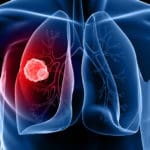Topic: Cancer research

A world-first study has revealed that tobacco companies use Twitter to positively shape their public image.

Our researchers have investigated the potential for cervical cancer to be eliminated as a public health problem globally.

Research at Cancer Council NSW has shown that Australia’s lung cancer mortality rates are in decline.

This research has revealed a significant increase in rates of anal cancer in high-income countries, including Australia, since the late 1980s.

Resistance to endocrine therapies is common, affecting around 40% of people who undergo treatment for breast cancer. Dr Caldon’s team investigated the underlying causes of this resistance.

Using the latest approaches to genomic sequencing, Associate Professor Marcel Dinger and his team have identified genes that contribute to rare head and neck cancers.

Associate Professor Holst’s team have been working on a new type of anti-cancer drug that can ‘starve’ prostate cancer cells and stop their growth.

Professor De Fazio’s team investigated a rare and treatment-resistant subtype of ovarian cancer. Their approach has a better chance of predicting which treatments will work.

This study found that a prostate cancer diagnosis puts Australian men at much higher risk of suicide compared to the general male population.

This project is a critical step to expand treatment options and could also pave the way for development of immune therapies for breast cancer.